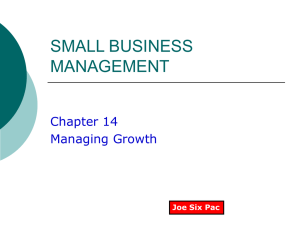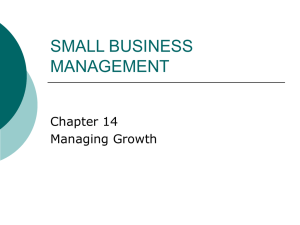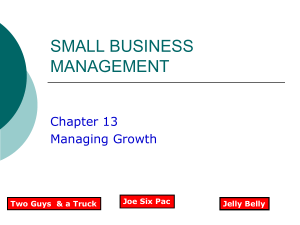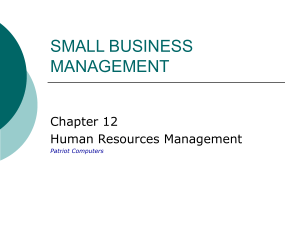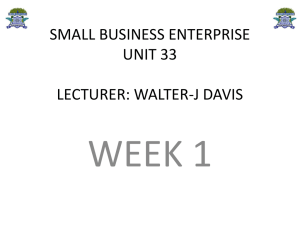SMALL BUSINESS MANAGEMENT Chapter 14 Managing Growth
advertisement
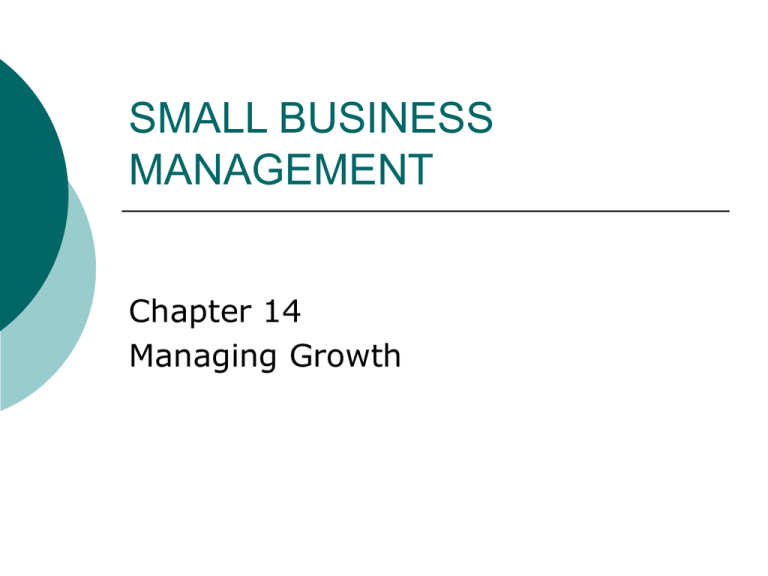
SMALL BUSINESS MANAGEMENT Chapter 14 Managing Growth The Business Cycle Introduction Growth Maturity Decline Problems Created by Growth Owner-Manager Fatigue and Stress Lack of Communication Lack of Coordination Shortage of Cash Low Profitability Problems Created by Growth (cont.) Breakdowns in Production Efficiency Lack of Information Decreasing Employee Morale Owner Lifestyle Evaluating the Growth Question Is the business one that can grow ? Is the business owner prepared to make the effort ? Does the owner-manager have the capabilities to grow? How should the owner-manager pursue growth ? Evaluating the Growth Question (cont.) Growth options new markets for the product or service increased sales by increasing frequency of use. add new products or services or modify existing ones. new uses for present products or services acquire other small companies Planning for Growth The Expansion Plan set objectives determine alternatives select the best alternative Planning for Growth (cont) Understanding the Requirements of Growth Greater Management Depth Intelligent Expansion Additional capital Financial Information Organizational Change Implementing Managerial Controls Monitoring the External Environment Concept Checks 1. What concepts can help the owner-manager deal effectively with growth problems? 2. What are the four stages of the business cycle? 3. What are the problems created by growth? Concept Checks 4. How can the owner-manager deal effectively with growth? 5. Why don’t small business owners use more formal planning? 6. What are the steps in the growth plan? 7. What are the requirements of growth?

